Ahead of the sixth season premiere of Rick and Morty on Adult Swim on Sunday, September 4, show creators Justin Roiland and Dan Harmon and exec producer Scott Marder participated in a round-table press event in which they answered a few of our questions. What follows is an edited version of what they shared with select trade publications about the entertaining and unpredictable new season of the multi-Emmy-winning series.
The Season 5 finale saw Evil Morty unveiling a new world before jumping into a yellow portal and possibly finding release from Rick. It was quite an episode and left the door open for many possibilities… Can you tell us a bit about what brought us to the new season?
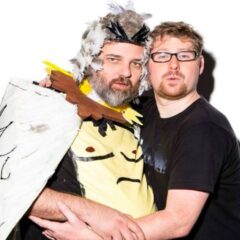
Justin Roiland: Every season’s got its own different, crazy, behind-the-scenes story, right? Like I mean, every single season has something insane. But I think this one has been the most stable, and then because of that and because of [Scott] Marder now being [showrunner] — he obviously was here for Season 5, you know. But it was just a crazy time. The whole thing was just insane. It was such a transitional kind of period of time. I think now we’re kind of all back to a bit more of stable footing and normality and consistency, just quality across the season. There’s a few dips here and there, but like, overall I think it’s a pretty solid season that will rank up there in what are the best seasons, I’m hoping.
Dan [Harmon] and I and the writers, we never know which ones are going to be the big popular episode. Like we never thought Pickle Rick was going to be some huge, jump out thing. I swear to god. We had other episodes that we thought would be more popular. I mean, we loved the episode, don’t get me wrong. But we didn’t know, we had no clue, so when that thing blew up, we were like, “Holy s—t, okay.”
You mentioned the difficulty of getting a sci-fi animated show greenlit back when Rick and Morty first premiered. Can you elaborate on that?
Justin: We’re very, very lucky with the cast we have, and I think that’s also part of it is just having the chemistry right out of the gate with our cast and the performances we have right out of the gate, from even Season 1. I can tell you we were having a hard time getting a sci-fi concept through the gate. This was around the time that Futurama was canceled. Sci-fi was not profitable, it was not doing as well. Executives saw sci-fi and they were like, “Eh-eh, nope, that’s a no — it’s a dirty word.”
So that, for sure, was the climate at the time and then we were able to get one past the goalie. Obviously, it was a very smart goalie who knew what they were doing and let us make the show we wanted to make and here we are. But yeah, I’m just a big sci-fi fan, so anything that’s well-crafted, well-written, that has stakes, has consequences and takes, takes its canon and things that have happened seriously and plans things really well, doesn’t just fly by the seat of its pants — I’m not referencing anything specific here, but, um…
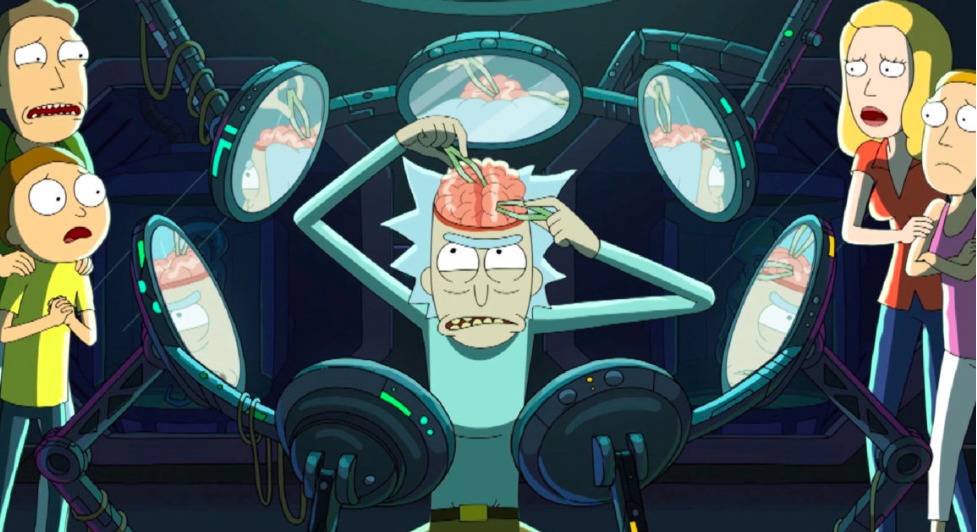
How do you find the balance between off-the-wall sci-fi concepts and the normal rhythms of the show where we have these regular characters interacting with each other?
Justin: [Laughs] We’re all so morose when it comes to life. Or maybe we’re healthy, I don’t know, maybe we’re really healthy. But yeah, I think that in performing them, it’s like just having fun and making sure that the performances are grounded and real. We’ve got a really phenomenal cast that delivers it all, on every line, it’s just phenomenal. Then there is the silliness, for Rick and Morty in particular sometimes, where I’ll go off script and improv a little bit between the two of them, and you kind of sometimes can notice that stuff. Sometimes you don’t notice it; it integrates in pretty well sometimes.
That’s always a fun component to the show, but by and large, when the s–t hits the fan and it needs to feel real and the characters give a s–t, like yeah, then it’s like, “Okay, we’ve got to sell that with our performances,” and that’s any good show that cares. But a lot of cartoons, that isn’t their number one, that’s not a pillar or a parody, their primary focus is comedy and jokes, jokes, jokes — which we try to do too, but we also have consequences and stakes and stuff that will ripple across seasons. Not every show has to do that to win me over, but I do appreciate the ones that try, ‘cause it’s just more interesting.
But I mean, I f—–g love South Park, it might even be my No. 1 favorite animated show. They’ll do it a little bit here and there, play with that in a season. Clearly, nowadays, they’re doing these crazy serialized seasons that are just f—–g incredible.
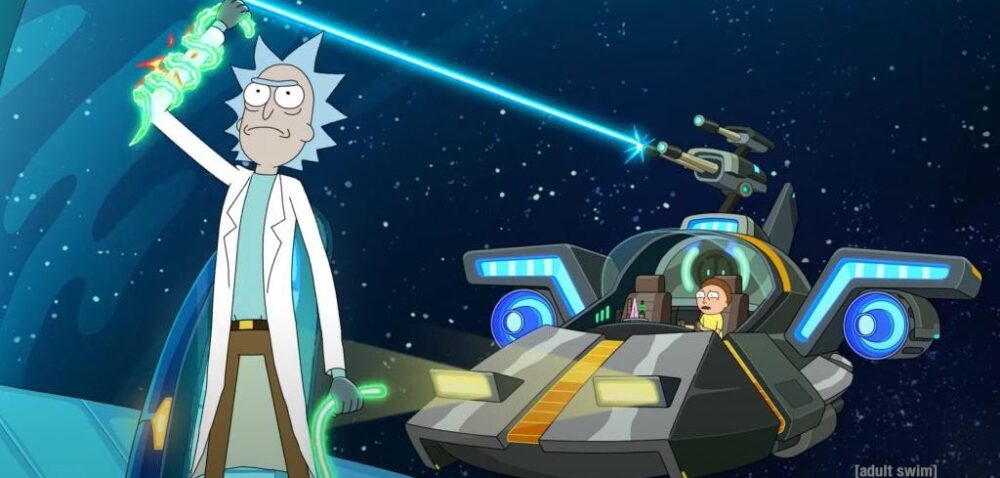
How does an episode’s tone evolve during the production of an episode?
Dan Harmon: You try to control that, you try to recognize from the premise forward. I’ll say things like, if a writer wants to do something that’s like, “Oh, what if multiple versions of Rick do this or that?”, then I might say something like, “Look, if we’re gonna do this, the challenge is going to be that it needs to be incredibly emotional, because we’ve plundered this concept. No one’s going to be — including the characters on screen — no one’s going to have their mind blown by the idea of multiple Ricks.”
So, I’ll say something like that, but you may as well just be saying — like, you’re an airplane pilot and you’re going like, “Look, this flight has to be smooth.” It’s like, “Well, yeah, okay,” and then what happens, happens. The way it really goes is you kind of — I’ve never parented, but it’s the easiest metaphor, because your job has to be to let it fly and then watch and make adjustments to what’s happening — I mean, we do so much re-breaking, sometimes, when we see the first version of the episode as drawn by artists.
It’s got to be very frustrating for them, but at the same time it’s a better way to figure things out than writing endless drafts. I used to sit there until I felt it was Citizen Kane on a keyboard while everyone was like, “Dude, we have to draw something.” And I’d be like, “You don’t have to draw it if it’s bad. You’ll thank me when you don’t have to change it.” But we would still have to change it. That was my big revelation, like, “Dude, I’m not doing anybody any favors, I need to let stuff go when it’s good enough for now, and then have the writing process be less like it’s a blueprint and more like it’s a memo. It’s a conversation starter, and then we have to work together as 200 people going around and around and let this thing develop like a child.”

Scott Marder: Yeah, I don’t think it’s a goal of like this next one, the third one, we’re going to make this more of a blah, blah, blah. Normally, there’s always a lot of ideas on the table and just the good ones spark more joy than the less good ones, and those are the ones that we just gravitate towards and start slotting in as the next one in the season.
Can you talk about how you were able to deal with the consequences of the Season 5 finale?
Dan: We knew we didn’t have to undo it, but we knew we had to answer for it. When you see a cliffhanger like the end of Season 5, it’s kind of like buying on a credit card — that means when we were at the end of Season 5, we were kind of like, “How do you end this season?” and sometimes the answer is, “Well, we can exchange debt for credit. We can basically put ourselves on the hook, and it’ll be a good finale, but only because it’s making people wait, which is a tough thing to decide to do. Honestly, it’s more of a survival response. I’m like, “Okay now what do we owe? We have to pay this bill.” That’s how I look at it, which isn’t as romantic, but I don’t know, Scott, do you have a different [take]?
Scott: We were excited to tackle it, it was very high pressure, we put a real big episode out there with a lot of loose ends. It made it really challenging in Season 6, because I feel like we actually took a swing at a few versions of it that just didn’t feel like it lived up to the finale yet, until I feel like in the eleventh hour, we found what is now 601, that kind of felt like it did everything in the middle of a season. But, yeah, it was a lot of work, but I’m really grateful for the one that we ultimately found and landed for you guys, because it feels like it does everything.
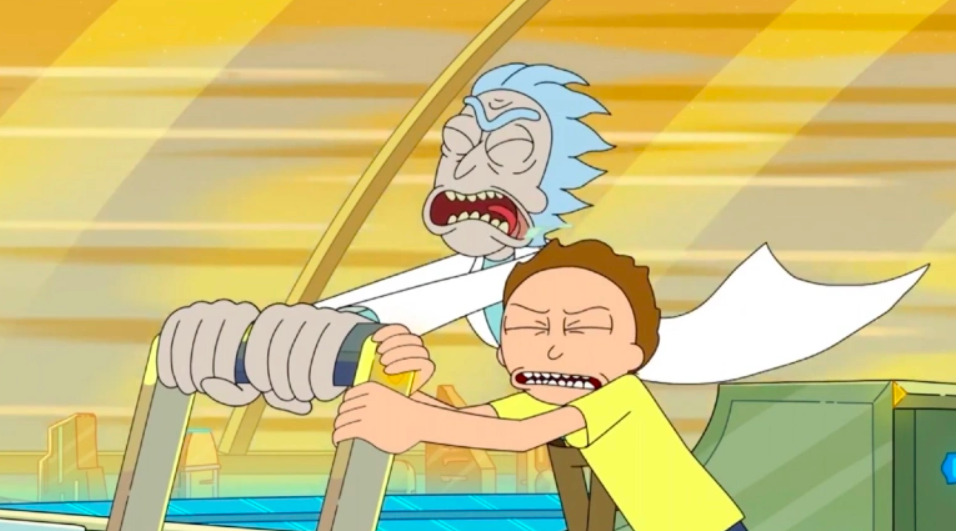
What is it like to build these elaborate worlds and then have to immediately burn them down and then move on to the next one?
Dan: For me, what that is is symptomatic of an aversion to commitment. It’s not so much a challenge that’s put upon us — unless ‘us’ can be separate, like, it might be a challenge that I have put upon some of the writers. I’m too scared to just start telling stories in a consistent environment.
I think it’s better to just set fire to the stuff, because to not do so is to say, “This is precious,” and if you say this is precious, you might be wrong, and then you suck, and I can’t suck, so I’m just gonna introduce these characters that, on any other show, might be like, “Hey, let’s keep these guys around.” But then there’s the part of me that is incredibly, like, “I don’t want to let people down,” so I’m like, “Uh, whatever, that’s stupid, then they all die.” I think the show kind of inherits that from me, maybe, that’s like an ancestral psychological illness.
Scott: Yeah, I felt like a combo of that and just our general excitement just keeps us always going to new worlds and new locations, just because the show is so limitless, you bring in a new writer, who’s been a fan of the show for the last 10 years who just wants to play in this sandbox, and that’s why every episode feels like it’s a completely different sort of movie.
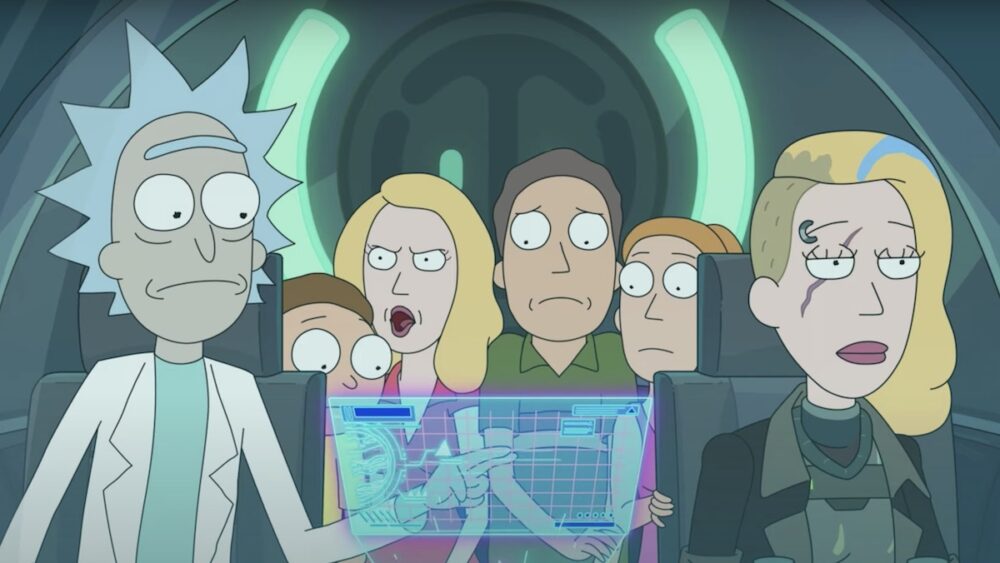
Can you talk about the future of the show? What do you see beyond the 70-episode order?
Dan: Well, in my opinion, yeah, I very much expect the show to go beyond that order. I don’t think that’s jinxing it, I mean, it just seems like, “Okay, we’ve got a certain amount of momentum here.” The 70-episode order, to me, was like, “Well, how much can we commit to?”
It was a two-way street between us and the network saying we’re going to take this very seriously, right? We’re not going to go develop a bunch of stuff unless we hire, like, a Scott Marder to run the shop. But in any case, it’s a commitment to professionalism and stuff, and it was an important one. It’s like, “Oh, we got tenure, we’re told that we have a job tomorrow no matter what we do.” The result of that a couple of steps later is now Scott has got the show on such a schedule that, for the first time in the show’s life, we’re looking at doing a season every year. It worked great, getting that order was exactly what we needed to grow up.
Scott: I plan to work on it until I’m like a nano-mist, like Morpheus in that last Matrix movie. Just like not in normal form anymore, kind of move in and out of rooms, always breaking the show.
Rick and Morty Season 6 premieres on Adult Swim on Sunday, September 4 at 11 p.m.







 Win a Funko X Lilo & Stitch Prize Pack!
Win a Funko X Lilo & Stitch Prize Pack! 


